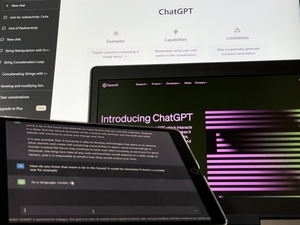ChatGPT in Education: Transforming Learning Through Intelligent Interaction
Corps
In an era marked by rapid technological advancements, the integration of artificial intelligence (AI) in various sectors is redefining the way we work, communicate, and learn. Education, as a cornerstone of human development, is embracing these changes, and the emergence of ChatGPT as a powerful AI language model holds the promise of revolutionizing the educational landscape. With its ability to provide personalized, interactive, and accessible learning experiences, ChatGPT has the potential to reshape education as we know it.
Personalized Learning: Tailoring Education to Individual Needs
The Power of Personalization
Every student is unique, with distinct learning styles, paces, and preferences. Traditional classroom settings often struggle to cater to this diversity, leading to missed learning opportunities and gaps in comprehension. Enter ChatGPT, a virtual tutor capable of adapting its teaching approach to match each student's specific requirements. By analyzing responses and interactions, ChatGPT can identify areas where a student is struggling and offer targeted explanations, additional resources, and practice exercises. This personalized approach ensures that no student is left behind and that learning is truly tailored to individual needs.
Fostering Lifelong Learning
In a rapidly evolving world, the concept of lifelong learning has gained prominence. However, traditional education systems can be rigid and inflexible, limiting the opportunities for continuous skill development. ChatGPT addresses this challenge by providing on-demand learning experiences via custom solutions. Whether students are seeking assistance with homework, assignments, or exam preparation, ChatGPT's 24/7 availability ensures that learning isn't confined to a fixed schedule. This dynamic accessibility encourages a culture of lifelong learning, allowing individuals to upskill and adapt to changing demands.
Enhanced Engagement: Igniting Curiosity and Critical Thinking
Engagement as a Catalyst for Learning
Engagement lies at the heart of effective learning. Traditional lectures and static educational materials sometimes struggle to captivate students, resulting in disinterest and reduced retention. ChatGPT, with its conversational nature, has the potential to revolutionize engagement in education. By presenting information in a conversational manner and posing thought-provoking questions, ChatGPT transforms the learning experience into an interactive dialogue. This approach sparks curiosity, encourages exploration, and nurtures critical thinking skills.
Simulating Real-World Discourse
Learning is most effective when it mirrors real-world interactions. ChatGPT achieves this by simulating discussions similar to those that occur beyond the classroom. Through interactive conversations, students can engage with the AI model in a manner akin to engaging in discussions with peers or mentors. This not only deepens understanding but also hones communication skills – a crucial asset in today's interconnected world.
Language Proficiency and Communication Skills: From Fluency to Articulation
Refining Language Skills
In a globalized society, proficiency in language and communication is paramount. ChatGPT steps in as a language mentor, offering learners a platform to practice writing, speaking, and articulating thoughts. The model suggests grammar and style improvements, delivers feedback on writing assignments, and participates in spoken interactions to enhance pronunciation and fluency. This real-time guidance contributes significantly to enhancing language skills and fostering effective communication.
Assistance for Special Needs: Inclusivity and Personalized Support
Championing Inclusive Education
Inclusivity is a central tenet of modern education. For students with special needs or learning disabilities, the provision of personalized attention is critical. ChatGPT's adaptability and patience make it an ideal tool for providing tailored support. The model can present information in diverse formats – be it text, images, or simplified language – ensuring that students with varying abilities can access and comprehend the material. This inclusion-oriented approach reinforces the belief that education is for everyone.
Global Access to Quality Education: Bridging Geographical Divides
Democratizing Education
Access to quality education should be universal, transcending geographical boundaries and socioeconomic disparities. Regrettably, many individuals around the world lack such access. ChatGPT has the potential to democratize education by leveraging the power of the internet. As long as there's an online connection, students from remote areas or underserved communities can benefit from the wealth of knowledge and assistance that ChatGPT provides, bridging the gap between education haves and have-nots.
Ethical Considerations and Challenges: Charting a Responsible Path
Ensuring Ethical AI Use
With great power comes great responsibility. The integration of AI in education raises ethical considerations such as data privacy, AI bias, and the potential for overreliance on technology. It is imperative that educators, AI developers, and policymakers work in tandem to establish ethical guidelines that uphold the integrity of education. These guidelines should encompass data protection, transparent algorithms, and mechanisms to address any unintended bias in AI interactions.
Conclusion
In conclusion, the transformative potential of ChatGPT in education is undeniable. From personalized learning that adapts to individual needs to enhanced engagement fostering critical thinking, from language proficiency improvement to inclusive support for special needs, and from global access to ethical considerations, ChatGPT stands at the precipice of revolutionizing how we learn and teach. By embracing this AI-powered tool while also navigating the ethical challenges, educators and learners alike can harness the power of intelligent interaction to usher in a new era of education that is personalized, engaging, and accessible to all.










commentaires